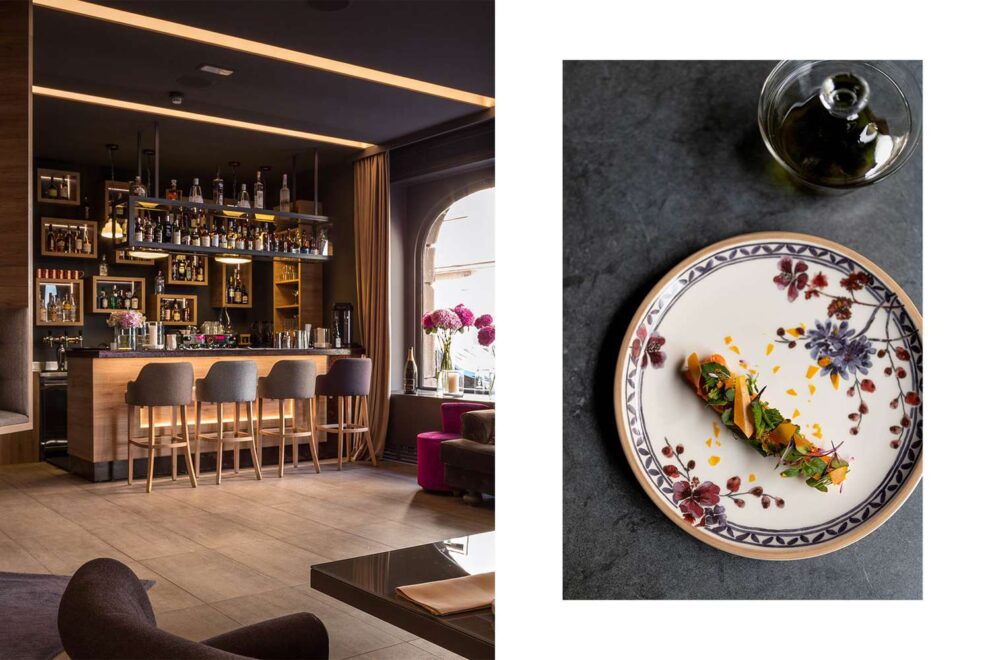The Croatian capital’s food scene reflects the diversity of the country’s historic and cultural influences, which range from Austrian and Hungarian to Italian and Turkish. But in the past few years, a handful of Zagreb-based chefs have placed greater emphasis on their national cuisine, designing innovative tasting menus around a common philosophy: looking back at one’s roots is sometimes the best way forward.
At Nav, chef Tvrtko Šakota researches forgotten Croatian dishes and re-creates them using modern techniques and organic or biodynamic ingredients. The restaurant opened in 2019 in a former stable in the city center.
Growing up, Šakota’s parents made their own miso and inspired his love of fermenting. “We are using a lot of techniques that came from Japan,” Šakota told me before I sat down for dinner. Over the course of 14 artfully plated dishes, his showmanship included a tableside demonstration of smoking young carrots over coals, robata-style, and a trompe l’oeil of specialties from different parts of Croatia. One standout dish was presented as a nigiri, featuring an amaranth-and-buckwheat base topped with young spring asparagus, olive oil from Dubrovnik, lemon from Vis, and shavings of cheese from the island of Pag. The experience felt highly personal — not least because Šakota serves only 10 to 12 guests each night.
At Theatrium by Filho, a lunch spot that also debuted in the city center in 2019, chef-owner Filip Horvat changes his menu daily, personally sourcing produce at the city’s Dolac Market each morning. My meal began with a riff on ćevapčići (grilled finger-size rolls of seasoned ground meat, a Croatian staple) that was made with wild Adriatic bluefin tuna and served in a bao bun with kaymak, a condiment of horseradish cream, spring onion, and chili. Horvat’s savory “ice cream” sandwich is built from cheese crackers and a filling made of Drniš prosciutto and Pag cheese.
Zagreb’s reinterpretation of traditional cuisine is also reflected in the city’s only Michelin-starred restaurant, Noel, which has been led by executive chef Bruno Vokal since 2020. His approach is exemplified in his signature štrukli, tender ravioli filled with cottage cheese and sandwiched between baked and dehydrated milk chips.
For the finale of my tasting menu, he condensed two classic Croatian desserts into bite-size servings: Međimurska gibanica, a layer cake from the north of the country, became a ball of phyllo pastry with walnuts, fresh cheese, apples, and poppy seeds, covered with dehydrated sour cream chips. And Korčula klašun, a type of cookie from the island of Korčula, was presented as a shortcrust pastry ball filled with almonds and rose water. “For me this food has a huge sentimental value because these dishes are often made in my home,” Vokal told me. “They always remind me of my origins and of kindness.”
Source : Travel + Leisure































